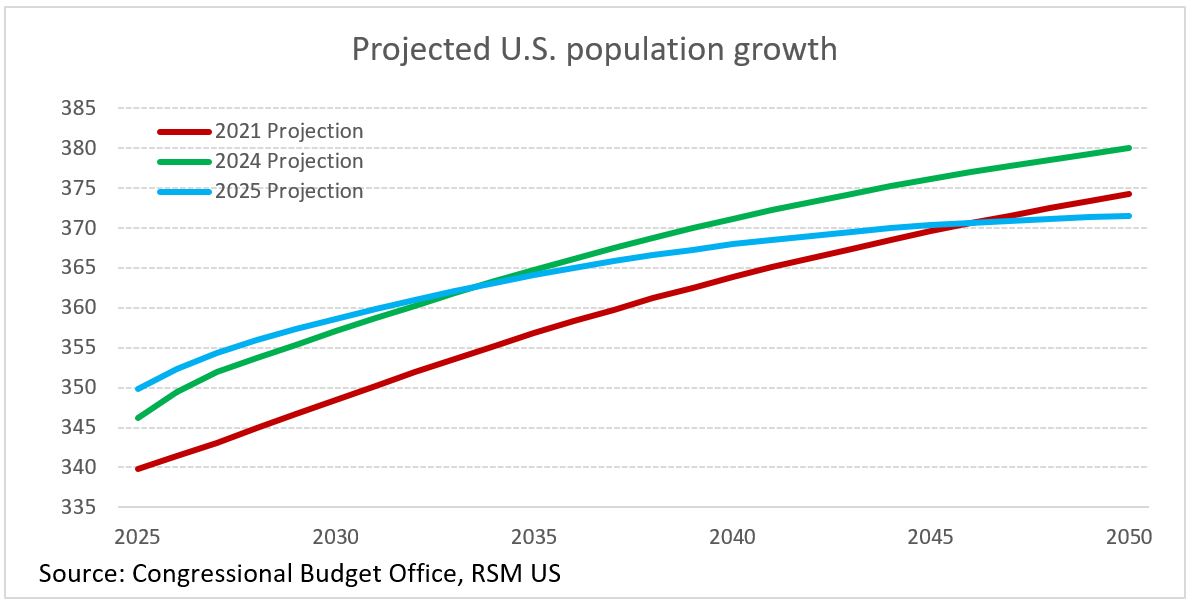


Recent polling data and economic forecasts reveal a complex picture of immigration and demographic growth in the United States as we move into 2025. An AP-NORC poll indicates that immigration has emerged as a top priority for nearly half of U.S. adults, a significant increase from one-third the previous year. This shift is particularly pronounced among Republican voters, with 70% now prioritizing immigration and border security, up from 45% two years ago [88b3e627].
In contrast, the Congressional Budget Office (CBO) has revised its population growth estimates, projecting the U.S. population will reach 350 million by 2025, down from previous estimates of 346 million. This reflects a broader trend of slowing population growth, with projections indicating a decline from a growth rate of 0.4% per year to just 0.1% from 2036 to 2055. Notably, without immigration, the U.S. population is expected to begin shrinking as early as 2033 [9cf05205].
The AP-NORC poll, conducted from December 5-9, 2024, with a sample size of 1,251 adults, highlights that while immigration is gaining traction as a priority, economic issues remain paramount, with 75% of Americans emphasizing the economy as their primary concern [88b3e627]. The dual focus on immigration and economic stability reflects the complexities of voter priorities as the 2024 elections approach, particularly with Donald Trump potentially returning to the White House amid heightened immigration concerns [88b3e627].
In a related analysis, Joseph Brusuelas from RSM US notes that the current economy is grappling with higher inflation and interest rates, compounded by labor supply constraints. He warns that significant deportations could exacerbate inflation by lowering unemployment and driving up wages [9cf05205]. This economic backdrop underscores the importance of immigration policies in shaping future economic conditions.
Furthermore, a separate poll conducted by AP-NORC and AAPI Data reveals that a significant majority of Asian American and Pacific Islander (AAPI) adults view legal immigration as beneficial to the economy, with 80% supporting its economic contributions. However, only 40% believe that illegal immigration positively impacts economic growth, indicating a nuanced perspective within the AAPI community [b4804941].
As the political landscape evolves, immigration remains a pivotal issue, with candidates addressing these topics in their campaigns. The findings from both polls and economic analyses underscore the growing importance of immigration in public discourse and its implications for future policies [88b3e627][b4804941][9cf05205].